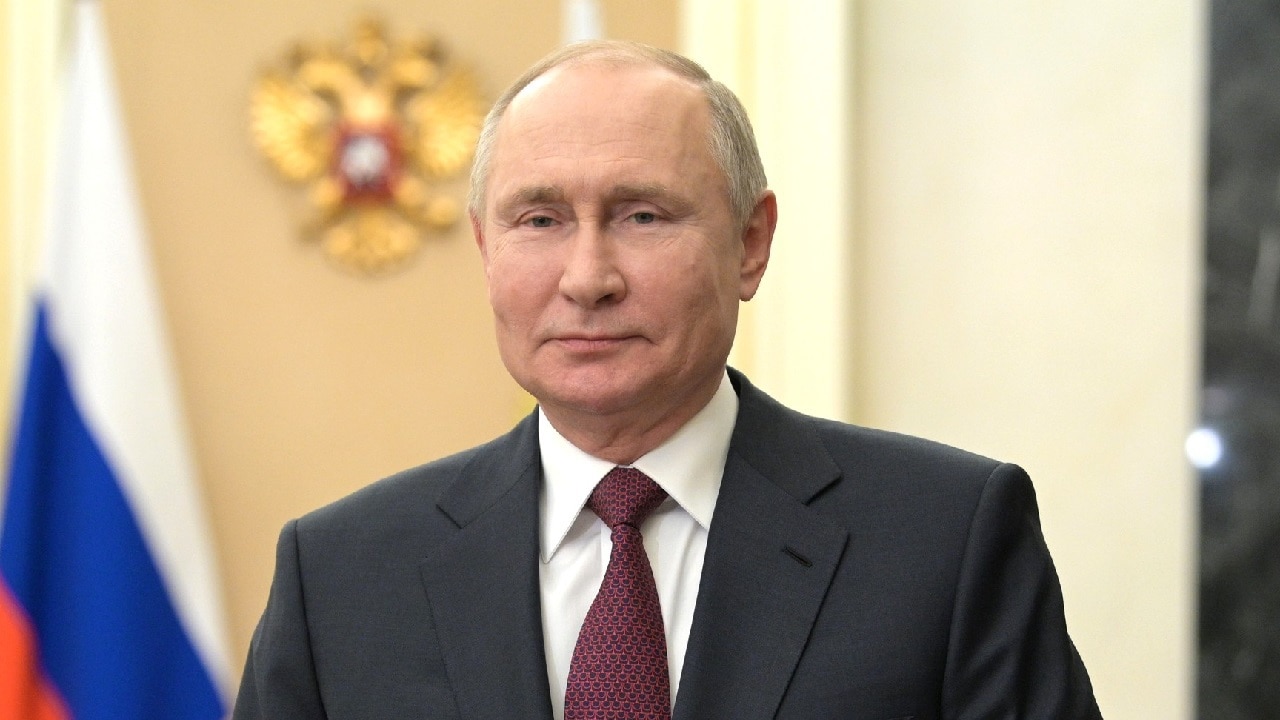Reports revealed over the weekend how Russian President Vladimir Putin fired the infamous “Butcher of Mariupol” from his position as Deputy Defense Minister for Logistics. RadarOnline reported how Putin fired Colonel-General Mikhail Mizintsev, one of Russia’s top military commanders, from the position he has held since September of last year.
Reports suggest that the move may have been motivated by a fear that Russian commanders and officials are plotting a coup to remove Putin from his position of power as Ukrainian forces prepare a counteroffensive.
Mizintsev’s sudden removal from Putin’s inner circle was confirmed by Russian journalist Alexander Sladkov, who announced on Telegram that his “friend” had been relieved of his duties.
Afraid of a Coup
Putin’s alleged fear of a possible coup may not be unfounded, either. According to Abbas Gallyamov, a former speechwriter for the Russian president, Putin is facing increasing opposition at home as his military struggles to take control of key Ukrainian territories and the Russian economy continues to struggle under the weight of Western sanctions.
“The Russian economy is deteriorating, the war is lost,” Gallyamov told CNN earlier this year. “There are more and more dead bodies returning to Russia, so Russians will be coming across more difficulties and they’ll be trying to find explanation why this is happening, looking around to the political process and they’ll be answering themselves, ‘Well, this is because our country is governed by an old tyrant, an old dictator.’”
Gallyamov added that, as the Russian people confront the reality that the national economy is struggling and the war may not be winnable, a military coup that removes Putin from office “will become possible.”
With so much on the line for Russia, the chances that Russian officials may be thinking about a future without Putin, therefore, seem high – but the chances of Putin being ousted are not the same. In April, 2022, Putin removed more than 100 Federal Security Bureau agents from their positions, and the former leader of the Russian Fifth Service, Sergei Beseda, was placed under house arrest as part of an effort to send a “very strong message” to Russian elites who oppose Putin’s war.
Putin is likely very aware of efforts underway to replace him but has taken steps to make ousting him as difficult as possible.
Could Wagner Oust Putin?
In February, Kyiv Post correspondent Jason Jay Smart suggested that Yevgeny Prigozhin, the leader of Russia’s private mercenary group Wagner, could challenge Putin for his leadership position.
Amid rising tensions between Putin and Prigozhin over a lack of military equipment and weapons being supplied to Wagner’s private troops, Smart argued that Prigozhin “may recognize the changing winds in Russia as being his own window of opportunity to move up the ladder to the top spot.”
While those tensions appear to have somewhat died down in recent weeks, as Wagner soldiers continue their offensive in Bakhmut, Prigozhin has been one of the most vocal critics of the Kremlin throughout the war. In a 90-minute interview published last week, Prigozhin not only accused Putin of paying bribes to end the Chechen wars, but touted Wagner as a stabilizing force on the front lines as the Russian armed forces retreated in Ukraine. Prigozhin also accused the Russian military command of giving “bizarre” orders to its soldiers, argued that there is no real leadership coming from the Kremlin, and that “mentally ill” Russian leaders chose to refrain from providing soldiers with the resources they needed to win, with the intention of saving those resources for later assaults.
Will Putin Retire This Year?
Ahead of a presidential election in 2024 – one that Putin no doubt expected he could win in a landslide after handily taking control of Ukraine just weeks after he sent in his troops – Putin could potentially decide to save face and avoid an embarrassing defeat or bloody coup.
In an interview with the Khodorkovsky Live YouTube channel in January, former Putin ally Gallyamov also suggested that Putin will announce his successor some time this year. According to Gallyamov, Putin will choose his successor to avoid fighting for re-election and risking the chance of losing. Among those who may be given Putin’s seal of approval are Prime Minister Mikhail Mishustin, his deputy chief of Staff Dmitry Kozak, or Moscow Mayor Sergey Sobyanin.
“Such people can really win the election,” Gallyamov said, adding that Putin’s replacement will likely engage in negotiations with Ukraine and NATO, and “break the deadlock within the system.”
Should Putin choose this route, he may still fail to achieve his goal of reclaiming what he considers inextricable parts of Russia from Kyiv, but he would be guaranteed some personal security.
If the Russian president is suffering from the medical conditions the world has come to believe he is, including cancer and Parkinson’s disease, then retiring now and becoming a senator for life – something existing laws would guarantee to the retiring president – would allow Putin to “end his days calmly in his palace in Gelendzhik,” Gallyamov said.
MORE: Why Putin Fears the M1 Abrams Tank
MORE: I Went to War in the Leopard 2 Tank Ukraine Wants
Jack Buckby is 19FortyFive’s Breaking News Editor. He is a British author, counter-extremism researcher, and journalist based in New York. Reporting on the U.K., Europe, and the U.S., he works to analyze and understand left-wing and right-wing radicalization, and reports on Western governments’ approaches to the pressing issues of today. His books and research papers explore these themes and propose pragmatic solutions to our increasingly polarized society.

